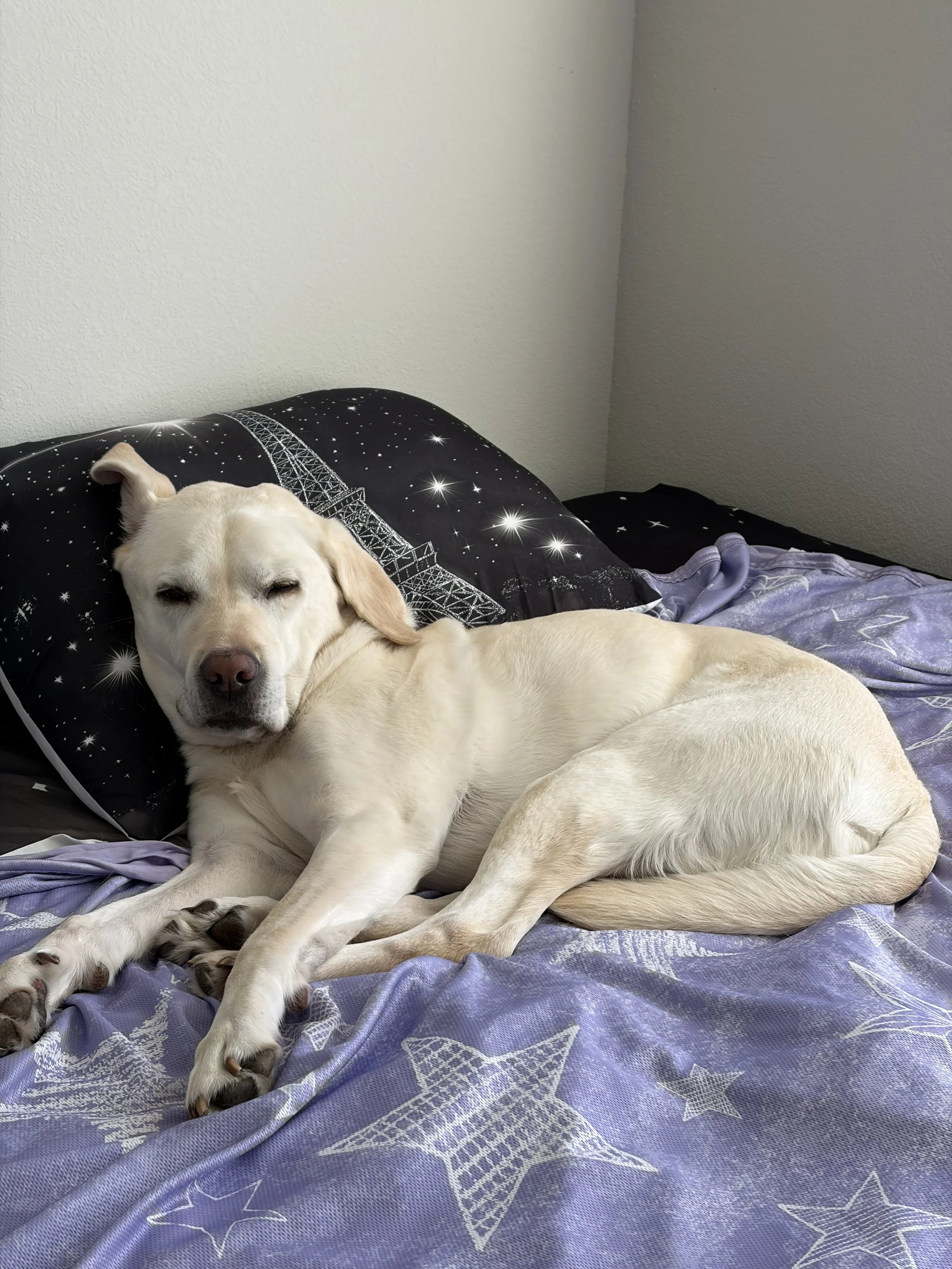Gratitude, Boundaries, and the Balancing Act
My ever-present companion who steals my bed while I’m at work. I thought such a heavy topic might need a bit of this cutie
Let’s talk about something that’s been weighing on me lately—something that’s messy, emotional, and deeply personal.
As a disabled person, I know how complicated it can be to publicly express gratitude toward able-bodied people who care for us. Some folks in the disability community feel that using our platforms to uplift caregivers can feel contradictory—like we’re centering able-bodied experiences on spaces meant to amplify disabled voices. And I get that. I really do.
But I also live in a small town, and for the past five years, I’ve struggled to find and keep an adequate staff of caregivers. It’s not just about logistics—it’s about trust, consistency, and emotional safety. And when you finally find someone who genuinely wants to give their all to you, it’s easy to forget that they’re human too.
Recently, I had a situation with someone I considered a close friend—someone who had been helping me with personal care. I noticed signs of burnout, but they didn’t voice their concerns. I had my doubts, but I figured they knew their limits.
I thought I had created a space where my caregivers felt safe enough to speak up, to say “I can’t do this today,” or “I need a break.” But I was wrong.
They kept pushing past their breaking point, and the resentment that built up quietly over time eventually exploded. The damage to our friendship was irreversible.
Here’s the hard truth: Even when someone is willing to give you everything, you have to be the one to say, “You don’t have to.”
Caregivers—especially those who are close to us—might not know when enough is enough. They might not feel like they’re allowed to say no. And if we don’t set boundaries for them, they might keep going until they break.
So if you’re ever feeling unsure about your caregiver’s capacity, don’t wait for them to tell you. Create space for honesty. Check in. Set boundaries.
Not just for your own well-being—but for theirs too.
I’m still grateful. I’m grateful for the people who’ve shown up for me, who’ve helped me live with dignity and independence. But I’ve learned that gratitude doesn’t mean ignoring red flags. It doesn’t mean sacrificing emotional safety for the sake of loyalty.
It means honoring the humanity of everyone involved—including your own.
Thanks for reading, and if you’ve ever navigated the delicate dance between care and boundaries, I’d love to hear your story. Let’s keep this conversation open, honest, and real.
